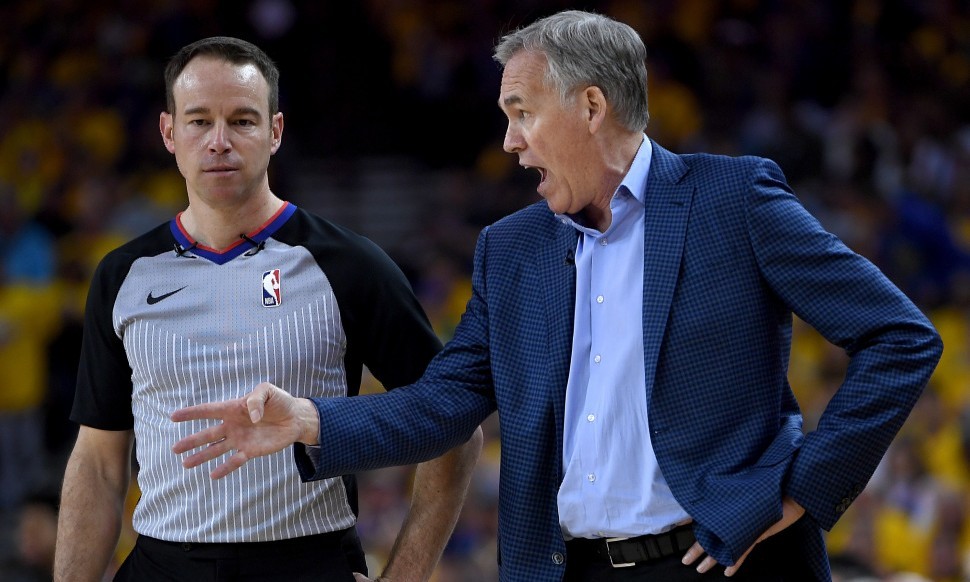
One of the biggest stories coming out of Game 1 of the Rockets and Warriors semifinals series was the officiating, particularly the lack of calls the Rockets felt they should have gotten on Warriors players closing out under the feet of their shooters.
James Harden in particular found himself on the ground on a number of occasions, pleading for a foul call after he felt his landing area had been taken away. There were undoubtedly some missed calls, but others that were certainly much closer and likely the correct no-call (like his game-tying attempt). Rockets players and fans may feel like they were robbed of an opportunity to steal a game at Oracle, but beyond those calls not going their way, they also missed a ton of shots and had plenty of chances aside from a lack of free throws they felt they’d earned.
After the game, there was plenty of discussion about how many of those calls were missed and whether the Rockets have legitimate gripes. ESPN’s Paul Pierce felt it was fairly simple, it’s tougher to get fouls in the playoffs and some of these simply didn’t reach the level of contact needed to get a playoff call. Steve Javie, former official and current ESPN analyst, was quick to explain that was wrong, but did offer an interesting thought on why that seemed to be the case.
.@SteveJavie had some things he wanted to address with @paulpierce34 when it comes to officiating. pic.twitter.com/cYGo4KVeJR
— NBA on ESPN (@ESPNNBA) April 29, 2019
Javie’s point that in the playoffs there are far more hard contests on shots and more contact, making harder to officiate, is something not often considered. Now, that won’t make fans feel any better about any discrepancies in calls, but it is a fair point to remind people of.
There’s long been an understanding that playoff basketball is slower, more physical, and often leads to, as Pierce notes, being let go. Now, as Javie says, there’s not a mandate or an effort to call the game differently — in fact the goal is to call it the same way — but there is something to be said about the difficulty of figuring out where there was contact and who initiated it that, when constantly happening in the playoffs, can lead to referees deciding to offer a bit more leniency in the understanding of the moment.
Officials like Javie will balk at that idea, but it’s hard not to see the consistency in the way they chose not to make those calls in Game 1 and not see it as a somewhat conscious decision to allow a bit more than usual as part of an effort to avoid calling too many fouls or being duped into calls when they weren’t there.






